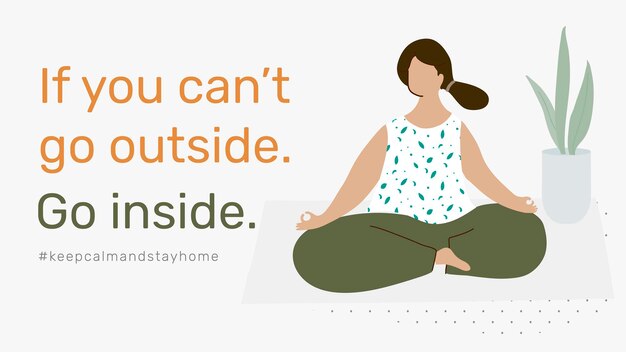
Meditation, a technique that trains the mind to focus on a single object for an extended period, is not just for the physically fit. Its various methods can accommodate all fitness levels, making it accessible to everyone, including those with physical limitations who can benefit from mindfulness practices like deep breathing and relaxation techniques.
There are many types of meditation, and not every type may suit you. The aim is to help you focus and become more aware of the present moment and yourself. Mindfulness meditation can bring peace and balance to your mental and physical health. By focusing on something that makes you feel calm, you can use it for relaxation and stress relief, improving your quality of life. Practicing mindfulness meditation regularly can help you calm your mind and focus on yourself.
For beginners, the benefits of meditation are plentiful. It can help you manage difficult emotions and physical anxiety with compassion. It can also reduce stress levels and help you feel more at ease in daily life. These benefits can motivate beginners to start and maintain a meditation practice. Regular meditation can improve focus, eliminate mental disorders, and enhance emotional well-being, leading to a more positive and balanced outlook. It also strengthens relationships, increases self-awareness, improves sleep quality, and boosts the immune system, helping you better cope with life’s challenges.
Finding time to meditate can be tough, but regular practice yields better results. A good rule of thumb is to meditate for twenty minutes, though there’s no fixed duration for an ideal session. Meditate in the morning to prepare for the day and at night to relax and unwind. Find a routine that works for you, even if it’s not both times. You don’t need anything special to meditate—just a warm, comfortable place to sit. You can use a yoga mat, a meditation cushion, or even just a rug or towel. Some people like to sit on their beds or in chairs. The key is to be relaxed and balanced.
One approach is to intentionally tune into your senses. Once you’re comfortable, close your eyes and focus on your other senses. Focusing on your breathing is an excellent way for beginners to stay in the present moment. Get settled in a peaceful spot, close your eyes, and concentrate on your breath as it moves through your lungs. Notice the subtle scents in the air, the vibrations around you, or the way your body feels as you breathe. If your thoughts wander, gently bring your focus back to these sensory experiences. This consistent practice can help you become more attentive and at peace.
Pay attention to how your body feels with each breath. Sit comfortably, take a deep breath through your nose, tighten your jaw, and close your mouth. As you exhale, let your abdomen relax. For beginners, this breathing technique can help reduce anxiety and lower your heart rate. Remember, mind-wandering is a normal part of meditation—everyone experiences it occasionally, even experts. The goal is to notice when your thoughts drift and gently guide them back.
When meditating before bed, create a calming environment in your bedroom. Wear loose, comfortable clothes, keep the temperature pleasant, and dim the lights. Find a comfortable spot to sit or lie down, depending on what feels best for you. Turning off electronic devices an hour before bedtime can help you relax, as the blue light from screens can interfere with meditation. Listening to soothing music or nature sounds can also help create a peaceful atmosphere, aiding your meditation and relaxation.
You don’t need to be experienced to benefit from meditation. Whether you’re just starting or looking to deepen your practice, setting aside time each day to meditate can bring significant improvements to your life. Focus on your breath, let your abdomen expand as you inhale deeply, and release stress as you exhale slowly. If your mind wanders, gently bring your attention back to your breath. Consistent practice will help you get better over time.
For beginners, finding a quiet and comfortable spot is crucial. Start with shorter sessions and gradually increase the duration as you get more comfortable. When your mind drifts, bring your focus back to your breathing. The key to effective meditation is focusing on your breath or a mantra instead of specific thoughts, accepting your experiences without judgment, and being present in the moment.
